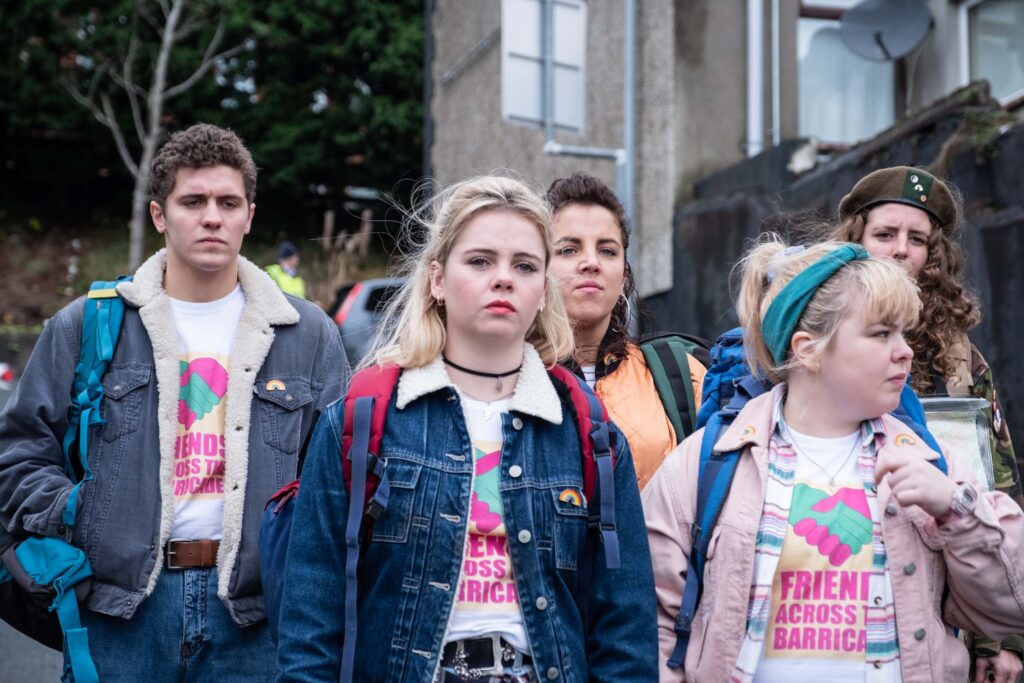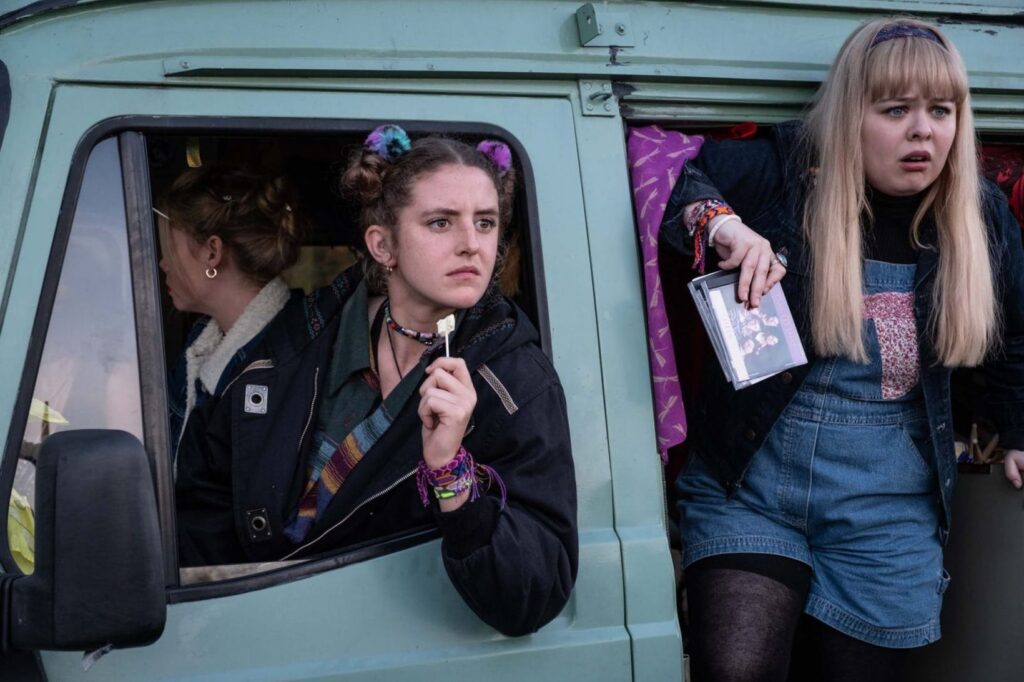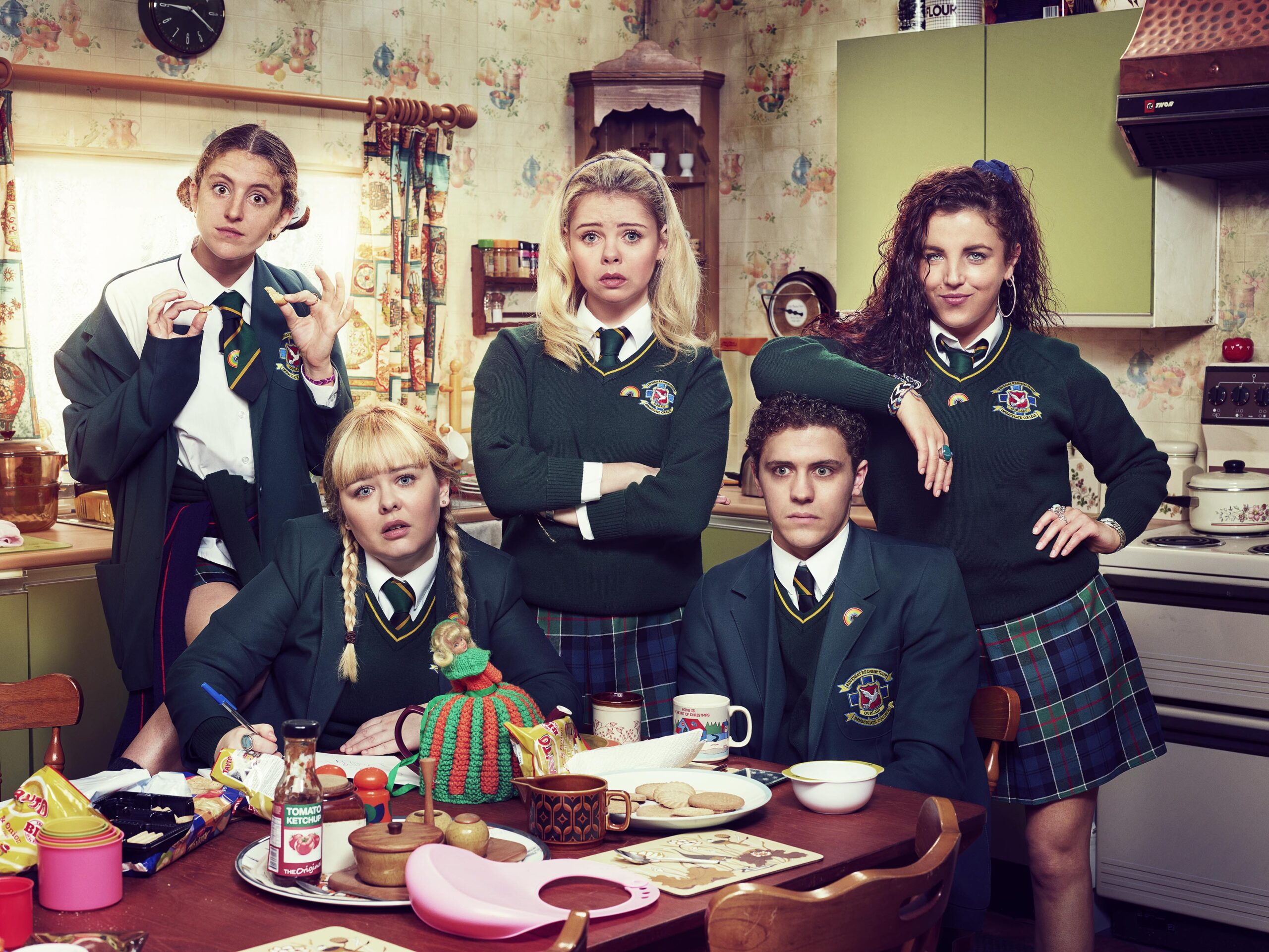In 2018, Netflix began airing Derry Girls, a coming-of-age comedy sitcom set in Derry, Northern Ireland, during The Troubles in the 1990s. The series follows the personal exploits of 16-year old Erin Quinn and her friends. Though each episode of Derry Girls is approximately 20 minutes long, it presents a clear picture of each character. Erin (Saoirse-Monica Jackson) is perceived as self-absorbed and overly ambitious. Clare (Nicola Coughlan) is the voice of reason. Orla (Louisa Harland) the eccentric. Michelle (Jamie-Lee O’Donnell) the troublemaker. And James (Dylan Llewellyn) the tag-along cousin, who many perceive as an effete. The dynamics between these characters were chaotic and unpredictable, especially in contexts that seemed exclusive to the target audience.
The show’s realistic portrayal of teenage lives
Unlike many mainstream television series, Derry Girls makes a point to avoid glamorizing the lives of teenagers. The characters are not presented as fashionable nor demure. They are more on the cusp of understanding who they are as people, actively processing and recognizing their preferences without being ashamed of it. Michelle, who is depicted as being promiscuous and something of a wild child, is open with her curiosity regarding sex and makes no attempts to hide away her interest in the opposite sex. Similarly, Orla is often detached from Erin and her friends, under the guise of making her seem dim when in actuality, she simply has little regard for how others perceive her. These traits enable viewers to develop a more unique connection to the characters. Possibly even finding themselves relating to the characters and their personalities.

In addition to this, Derry Girls also provides realistic relationships between the five teenagers and their family. While there are few particularly sentimental scenes to fit in the awkward lives of these characters, majority of the interactions between their families contribute to the daily chaos in their lives. The protagonist, Erin, often laments about the lack of privacy when living in their over-crowded house but predictably gets little sympathy from her parents. Orla, her cousin, is particularly shown to be the bane of Erin’s life at home due to her consistent disregard for Erin’s personal space when she reads her diary or barges in on her in the toilet. Erin’s relationship with her family as well as their relationships with the supporting characters of Derry Girls is what further elevates to the comedic element of the series.
Sister Michael’s independent spirit
Another highlight of this series is Sister Michael (Siobhán McSweeney), the headmistress of their school, Our Lady Immaculate College. Sister Michael is an unorthodox sort of nun that chooses to face many of the issues with deadpan sarcasm, cynicism and indifference. She often jokes that she became a nun for the free accommodation and has a no-nonsense attitude for the characters, including her fellow priests. While Sister Michael’s character brings a sense of humour to the events of this series, it also presents her as having a silent affection for the independent spirit displayed by her students. Her attitude towards them hints at an admiration for the girls, their earnestness and heart, even in the midst of their less than ideal environment.
Comedy as a means of communication, understanding, and growth
Though the cast of Derry Girls is loosely based on generic sitcom stereotypes, it still allows unique twists within their characters that are relative to the environment they grew up in. This is emphasized within the highly original storylines illustrated within the series. From falsifying a religious miracle to avoid an exam to getting banned from their favorite fast-food restaurant after almost burning it down and emptying the owner’s liquor supply, Derry Girls highlights the most profane and comedic instances of teenage mischief, despite growing up in a hotbed of ethno-nationalist conflict. It provides slapstick comedy coupled with sentimentalism, allowing viewers reminisce over their own tumultuous teenage-hood.

Derry Girls is both a tribute and a reminder of the chaos and urgency in our teenage years. It speaks to us about being too young and the desperate urge to grow up, try new things and become an adult, despite growing up too fast and longing for the carefree days of being a child. It reminds us of the vulnerability and the helplessness we felt about our self-image and how others perceived us, especially when we tried to accept ourselves. There are nostalgic throwbacks to the garish fashion and swooning over boys, all while narrating our lives like YA novels while we write in our diaries. Even from an objective standpoint, there are relatable moments like staying up all night to study for an exam or saving up money to buy sweets. As viewers, we get to relive in Erin’s wistfulness of what female adolescence should be and accept that life doesn’t always go in the direction we imagine it to. Even in the midst of a tense political background, this series is a candid expression of teenage excitement, being young and reckless with only school and boys as a primary concern.
Why you should watch Derry Girls
In the end, Derry Girls also reminds us that adolescence is not as glamorous as it is shown in every teen coming-of-age movie. It presents girlhood at its most unrefined- being selfish and opportunistic, and completely unapologetic about it. There is no grand moment where the Erin and her friends get an epiphany and begins to see their shortcomings as strengths. Instead we see five teenagers accepting each other, despite their flaws, indignities and awkwardness, as each of them work through accepting living ordinary lives in extraordinary times.
Check out:
‘Jagame Thandhiram’ (2021) Incites the Conversation on Racism Towards Immigrants







Be First to Comment